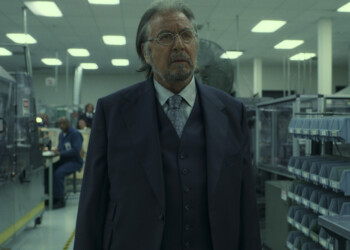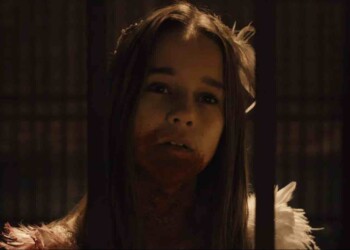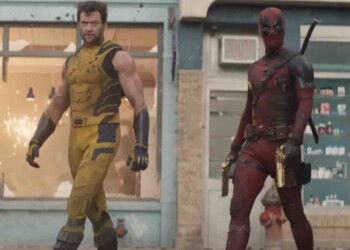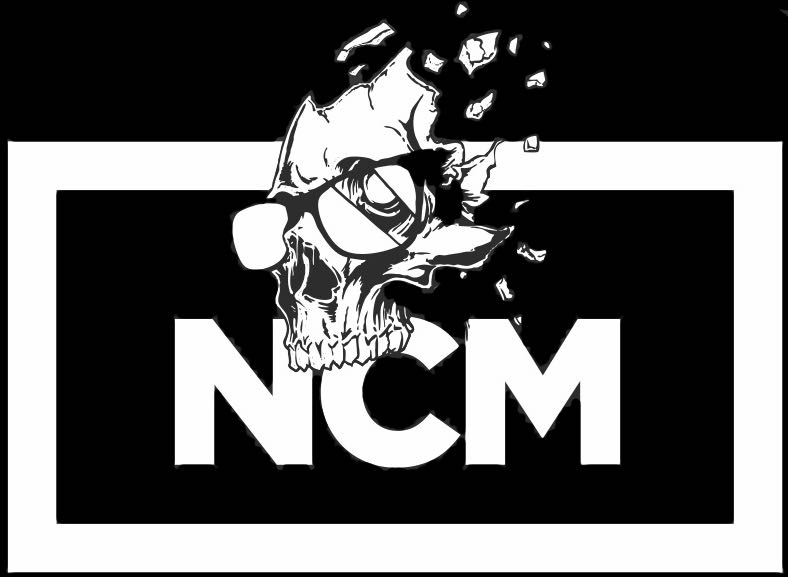Sons of Anarchy season 6 continues Kurt Sutter’s ultimate tale of power and how it can corrupt good men and bad men alike….
By Damon Martin — Editor/Lead Writer
Follow on Twitter @DamonMartin
In 1887, a man by the name of John Dalberg-Acton better known as Lord Acton penned a very famous letter to Archbishop Mandell Creighton discussing the recent power influx held by the Pope in the Roman Catholic church. It had been decreed at the time that the Pope would hold what’s called papal infallibility — essentially saying that the Pope is incapable of error, and holds complete authority of the church and its rules. Acton was no fan of this ideal and in his words to Creighton he spoke about the kind of power that the Pope would yield and how that ultimately would create a praetorian rule because that’s what happens when anyone is put in a position with that much control.
“I cannot accept your canon that we are to judge Pope and King unlike other men, with a favorable presumption that they did no wrong. If there is any presumption it is the other way against holders of power, increasing as the power increases. Historic responsibility has to make up for the want of legal responsibility.
“Power tends to corrupt and absolute power corrupts absolutely. Great men are almost always bad men, even when they exercise influence and not authority: still more when you superadd the tendency or the certainty of corruption by authority. There is no worse heresy than that the office sanctifies the holder of it.”
The key phrase that’s survived until today and continues to be relevant to almost every situation with an authoritative leader are the words “power tends to corrupt and absolute power corrupts absolutely.” The seed of power grows at first like a fruit, blooming prosperity and a bright outlook, but it can quickly turn to a virus that instead rots from the inside out, infecting anything and everything it comes in contact with as the disease spreads.
During the first four seasons of Sons of Anarchy, Clay Morrow wielded the gavel as president over his motorcycle club, and while the general idea was that democracy ruled as the group voted on every important issue as a single unit, the reality was much different. Clay wanted things to go his way, and only his way, and anyone that interfered with his plans quickly became collateral damage. Routinely when the club wasn’t ready to pull the trigger, Clay orchestrated back room deals in secrecy and what generally resulted was a crimson-soaked blood bath from Charming to Oakland. Whether he was ordering a hit on a fellow member or getting his hands dirty by ridding his club of a perceived cancer that was about to reveal some painful memories that he thought were long, dead and buried.
From his leather bound chair behind a table of oak with his club’s reaper symbol peering over everyone, Clay Morrow was a relentless leader whose desire to hold power overwrought every other decision he made. While Sons of Anarchy has never delved much into Clay’s early years, the mythos of the show has been explained by creator Kurt Sutter, who has stated that Clay along with eight other members got together after serving in the military to start the motorcycle club as a show of brotherhood. Clay’s best friend John Teller was the president of the club in those days, and he tried to lead as best he could, but the position overwhelmed him as he tried to balance what was right versus what needed to be done. As John’s apathy grew, Clay saw this as a sign of weakness and took the opportunity to grab the power away from his friend by shoving a knife in his back (technically he sabotaged John’s motorcycle causing him to crash) and stole his wife in the process.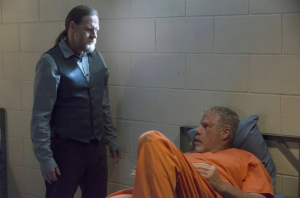
As Clay’s power grew, so did his need to hang onto it by any means necessary. He killed, robbed, lied and manipulated anyone and everyone around him if it meant hanging onto the power that came with being president. Clay’s words were routinely misleading when he said that all of his moves were for the good of the club, or even when he lied to his stepson Jax saying that a gun running-coke muling gig with a Mexican cartel was really just part of his end game to leave the gavel behind and move onto greener pastures. A few months later after having the presidency ripped away from him, Clay was back to his old games setting up home invasions to make the new president seem weak so he could ascend back to the throne.
The theme of Sons of Anarchy has always been about power, and what that power can do to the best of men and the worst of men. It can turn good men greedy, and bad men into megalomaniacal psychopaths who want nothing more than to watch the world burn if they can’t hold it all in the palm of their hand. Through the first five seasons, Clay’s desire to hold onto the scepter was on full display, as well as his fall from grace, and attempts to reach the peak of power once again. While we didn’t see his rise to the presidency, the story being told about how he killed his best friend while taking his wife seems to be all the information we need to know he will literally do anything to obtain the omnipotent position of ruler.
“The more I see, the more I think that Kurt is really doing an exploration of power and what that means and what that does to the holder of it,” Ron Perlman said about the show’s theme. “What he starts out to be, what he starts out to aspire to and what it ultimately does in terms of decaying him. With Clay you get to see the beginning of it, the middle of it, and the end of it and the aftermath of it. That’s to me what I think is what season six is about anyways.”
The slow drip into madness is what pushed Clay to commit unspeakable acts against the brothers that were supposed to be the ones he protected most. Even when his wife — the woman he won after killing her husband in a Harley fueled coup d’etat — decided to question his actions he ended up beating her viciously in one of the most disturbing and violent scenes in the history of the show.
Now as Clay is neutralized as a guest of the prison system in California, he can watch from afar as the he witnesses what the same rise to power will do to his stepson Jax, who has been the prince to this story the entire time. It’s one thing to watch evil men do evil things and wish you could change the narrative, but what happens when you stare into the mirror and see the image of the man you claim to hate staring directly back at you?
Since Jax took over as president he’s committed acts that most believed only Clay was capable of pulling off. While his intentions were good in te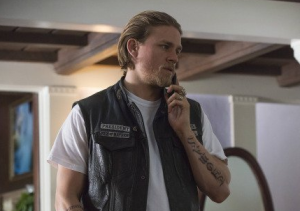 rms of moving his club away from gun running with the Mexican cartel, Jax ended up stirring a bee’s nest with his former partners at the IRA and he no longer has the muscle from the cartel to back him. He also doesn’t have the weaponry because he’s handed off that operation in favor of running Diosa North where the only weapon anyone is yielding there is a lacey, thong-covered snack.
rms of moving his club away from gun running with the Mexican cartel, Jax ended up stirring a bee’s nest with his former partners at the IRA and he no longer has the muscle from the cartel to back him. He also doesn’t have the weaponry because he’s handed off that operation in favor of running Diosa North where the only weapon anyone is yielding there is a lacey, thong-covered snack.
In his hate filled need for revenge, Jax usurped the decision of his club to let Clay live and decided instead to frame him for the murder of Oakland gangster Damon Pope. Now in theory, Clay was a monster that had to be put down, but this rings back to season one when it was Opie’s wife who became a victim of a presidential power play when he knew better as a lone individual than the democracy of the club. In framing Clay, Jax lost the vote of his good friend and vice president Bobby Munson, who laid down his patch in protest over seeing what the gavel did to the new king. When a threat came calling to his family, Jax once again pushed the envelope by injecting his ex-wife with heroin to implicate her as a drug addict to make sure she could never claim custody on their son Abel.
As much as Jax tried to eradicate SAMCRO of Clay Morrow for the good of the club, with each passing day he’s slipping more and more into his shoes. The scary part is Jax’s actions aren’t much different, but he’s getting better at them each time he twists and turns things to his advantage. The absolute power corrupts absolutely.
“I think power corrupts and he also inherited a total disaster,” Charlie Hunnam said about his role of Jax Teller this season. “I kind of thought of it a little bit in Obama taking over from Bush. Obama went a little crazy too, but he also inherited a total disaster. You’ve got to play the hand that you’re dealt. I think the stress and the pressure got to him all a little bit. I think this season we’ve got a little bit more of a mature, calmer, thoughtful Jax. At least so far, we’ll see how it goes.”
The other side of the coin from watching Clay Morrow bite, scratch and claw his way to try and maintain his position is that of Jax’s father John Teller. When he was president, John was a conflicted man who wanted to have it all, but knew deep down there was no way that would ever happen. He tried to steer his club in the right direction, but his will wasn’t strong enough and more conniving men were able to rip the power away from him and all he could do is watch it unfold. You wonder what the final thoughts were that rolled through John Teller’s mind as his motorcycle spun out that led to his ultimate end. Was he finally at peace knowing this is what had to happen? Did he hope in some utopian world that this was all a bad dream? Was John Teller tumbling down highway, being scraped, broken and bruised by each bump on the hard pavement really tell the story of what happens when you’re not strong enough to hold onto the throne?
“I think that’s part of the struggle. One could argue that’s the only way out of that would be the path of John Teller, which is kind of losing his mind a little bit as a result of trying to have it all,” Sons of Anarchy creator Kurt Sutter said. “I think that’s true and that will continue to play out.”
Jax wants it all but every time he puts a bandage over one gaping wound another springs to life with an arterial spray that dampens everyone in a sea of red. Just as he gets rid of the Mexican cartel that cost his club countless members, and finishes off the gangster who was the reason his best friend’s skull was bashed in while serving time in jail, Jax then has to watch as his wife — the mother of his children — is hauled off to jail for her involvement in a plot he conceived to help save his club.
The battle in season six of Sons of Anarchy rages on as Jax tries to find the balance between doing what’s right and doing what he perceives has to be done. It was a struggle that led his stepfather to commit horrible acts of violence, killing and betraying the ones he loved and needed most. It was the conflict that put his father in turmoil that ultimately led to his death. Can Jax survive the presidency or is he doomed to repeat the past? He’s straddling the line between what Clay became and the decisions that led to his father’s death.
“When we take action to avenge the ones we love personal justice collides with social and divine justice. We become judge, jury, and God. With that choice comes daunting responsibility. Some men cave under that weight. Others abuse the momentum. The true outlaw finds the balance between the passion in his heart and the reason in his mind. His solution is always an equal mix of might and right.”
Those were the prophetic words of John Teller from season one of Sons of Anarchy almost like he knew what was coming for his son later in life. Jax has already taken the role of judge, jury and executioner. Jax believes he knows what’s right for the club, and the will of democracy has already wilted in the sun of his need for revenge. The power is unyielding and overwhelming but also gives him absolution in any decisions he makes. He’s playing God without even knowing it.
The thing about being God is tricky though — because who wants to ask the opinions of angels when you can just destroy the world in a blink of an eye. And the alternative is laying in a heap of blood and bones on the side of the highway, defeated and destroyed by the very power that drove you to it. There only seem to be two possible ends to this life of an outlaw king and neither end with a crown on Jax’s head.


